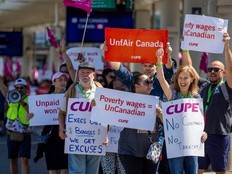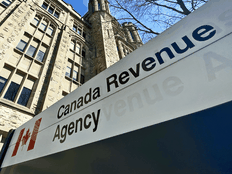OPINION: Taxes remain largest single expense for Canadian families

Article content
While policymakers in Canada face many issues, including U.S. President Donald Trump’s trade war, few issues are more important to Canadians than the rising cost of living. And while inflation and housing costs are important, there’s another even larger expense that makes it harder for families to make ends meet: Taxes.
As the saying goes, the two certainties in life are death and taxes. But, while we all know we must pay taxes, it’s more difficult to know just how much in total we actually pay. Canadians pay many different taxes to local, provincial and federal governments — income taxes, property taxes, sales taxes and payroll taxes, to name a few. And while some of these are quite visible (you can see how much personal income tax is taken off your paycheque), others are more hidden.
According to a new study published by the Fraser Institute, in 2024, the average Canadian family (including single people) paid $48,306 in total taxes. Given the average family’s total cash income was $114,289 in 2024, this means families paid 42.3% of their incomes in taxes levied by all levels of government.
This is much more than what families used to pay, even after adjusting for inflation. In fact, the average Canadian family paid just $17,166 in total taxes in 1961 (adjusted for inflation), which represented 33.5% of its total income that year. In other words, from 1961 to 2024, the inflation-adjusted tax bill of the average Canadian family increased by more than 180%.
How does the average family’s total tax bill compare with how much it spends on the basic necessities of food, shelter and clothing? In 2024, the average Canadian family spent $12,925 on food, $25,199 on shelter and $2,435 on clothing. Which means the average family spent a larger share of its income on taxes (42.3%) than on basic necessities (35.5%).
Simply put, taxes are the largest single expense for Canadian families.
Of course, Canadians receive some value from their tax dollars in the form of government services, so the total tax bill is the price Canadians pay for government services. Therefore, it’s ultimately up to individuals and families to decide whether or not they get their money’s worth from government.
But clearly, some Canadians do not feel like they’re getting good bang for their buck. For instance, according to a 2023 poll, nearly half (44%) of Canadians felt they received “poor” or “very poor” value from the services they receive from all levels of government. A 2025 poll found similar results — more Canadians feel they receive “bad” value rather than “good” value for money from all levels of government.
Canadian families pay more in taxes than they spend on food, shelter and clothing combined, yet many feel they do not receive good value for their money. If policymakers want to help families make ends meet, they should lower the tax burden.
Jake Fuss and Grady Munro are economists at the Fraser Institute











Postmedia is committed to maintaining a lively but civil forum for discussion. Please keep comments relevant and respectful. Comments may take up to an hour to appear on the site. You will receive an email if there is a reply to your comment, an update to a thread you follow or if a user you follow comments. Visit our Community Guidelines for more information.